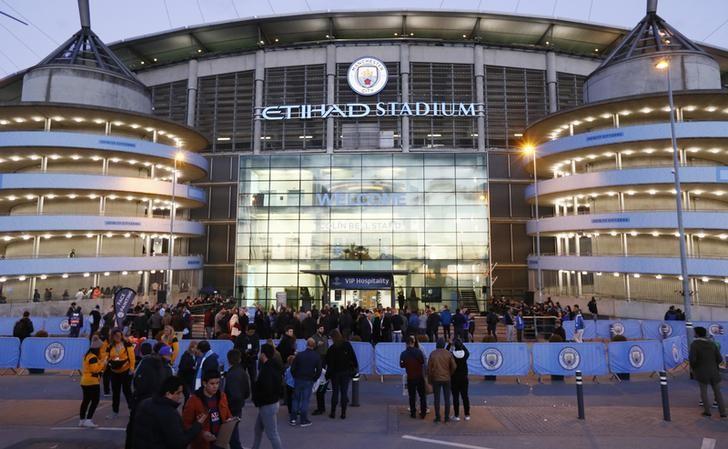Manchester City named Champions League's biggest earners
ZURICH: Manchester City were named as last season's biggest Champions League earners on Tuesday, with the semi-finalists raking in slightly more than champions Real Madrid, according to a UEFA report.
Amid increasing concern at the growing financial gap within European football, the report also illustrated the gulf in payments received by the top clubs and the rest.
UEFA said that a total of 1.345 billion Euros ($1.49 billion) was shared between the 32 teams which qualified for the group stage last season plus the 10 eliminated in the final playoff round.
This was an increase of 315 million euros on the previous season.
City received a total of 83.85 million euros, Real Madrid 80.07 million euros and Juventus 72.26 million euros, even though the Serie A side were beaten in the round of 16.
The report explained that each club received a set payment of 12 million euros for taking part in the group stage, plus bonuses for each win and draw and a further bonus every time they progressed through the knockout rounds.
In addition, the clubs also received payments from the market pool, which UEFA said was divided "according to the proportional value of the national TV market allocated to each individual club, among other factors".
The report showed that market-pool values varied enormously, ranging between 52.93 million euros for Juventus to just 1.29 million euros for FC Astana, the champions of Kazakhstan.
City received 46.92 million euros from the market pool compared to Real's 26.03 million, which enabled the English club to earn more overall, even though the Spanish team pulled in a 15 million euro bonus for reaching the final.
Shakhtar Donetsk, Malmo, CSKA Moscow, BATE Borisov, Dinamo Zagreb, Maccabi Tel Aviv, Porto and Dynamo Kiev all earned under five million euros from the market pool.
The differences in market-pool payments meant, for example, that Olympique Lyonnais received a total of 41.87 million euros while FC Astana received 17.29 million euros even though both went out in the group stage.
UEFA has announced changes to the competition for the 2018-2021 cycle which critics, including representatives of Europe's smaller domestic leagues, have said could be a step towards a Super League for the biggest clubs.
UEFA has rearranged the group-stage slots in favour of its four top-ranked leagues -- in effect Spain, England, Germany and Italy -- by guaranteeing them four places each.
UEFA also announced changes in the distribution of revenue with more emphasis placed on the historic sporting results of clubs and less on the value of their television market.






